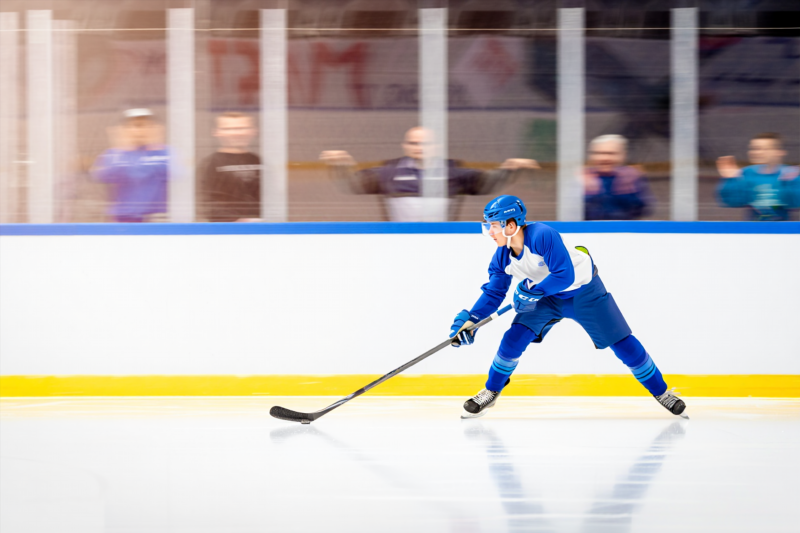
Master Balancing Personal Growth and Team Success Effortlessly
In the dynamic world of hockey—and indeed any team sport or collaborative project—success hinges on two vital pillars: individual skill development and cohesive team play. Striking the right balance between these elements can be the difference between a player who excels in isolation and a team that dominates together. In this article, we explore proven strategies to optimize your personal growth while fostering a harmonious team environment, empowering you to achieve success both on and off the ice.
The Importance of Balancing Skill Development and Team Play
Why both matter
- Personal skill development enhances your individual contributions, making you a more valuable player or team member.
- Team play ensures collective performance, strategic coordination, and a unified approach that overwhelms opponents.
Without a balance, excessive focus on just one aspect can lead to underperformance or disharmony. A well-rounded approach leads to sustained success, resilience, and continuous improvement.
Proven Strategies for Achieving Balance
1. Set Clear Personal and Team Goals
- Align objectives: Understand how your skills contribute to team success.
- Create SMART goals: Specific, Measurable, Achievable, Relevant, Time-bound goals help track progress and ensure cohesive efforts.
Example: *Personal goal:* Improve shot accuracy by 10% in 3 months. *Team goal:* Win at least 70% of games this season through coordinated plays.
2. Engage in Deliberate Practice with Purpose
- Prioritize skill drills that mimic game situations to enhance performance.
- Incorporate team drills like passing and strategy sessions to improve cohesion.
- Schedule dedicated time for individual practice alongside team practices.
3. Foster Open Communication and Feedback
- Regular team meetings promote shared understanding and collective problem-solving.
- Constructive feedback helps identify areas where personal skills or teamwork need improvement.
- Encourage peer coaching to develop leadership and camaraderie.
4. Balance Individual and Group Training
| Focus Area | Strategies | Benefits |
| Personal Skills | Focused drills, video analysis, private coaching | Faster skill acquisition, confidence boosting |
| Team Dynamics | Scrimmages, strategy sessions, teamwork exercises | Better chemistry, strategic execution |
5. Use Technological Tools and Data Analytics
- Leverage performance tracking apps and analytics to monitor personal improvement.
- Analyze team metrics to identify strengths and areas for collaborative growth.
- Data-driven insights help tailor training for both individual and team needs.
Overcoming Common Challenges
Fear of Personal Skill Overload or Neglecting Team Responsibilities
- Solution: Regularly balance solo practice with team obligations, ensuring neither is neglected.
- Tip: Follow a structured schedule that dedicates time to both aspects.
Maintaining Motivation and Focus
- Solution: Celebrate small wins in both individual and team contexts.
- Tip: Keep visual progress charts and motivational awards visible.
Navigating Leadership Dynamics
- Encourage shared leadership principles, where players contribute to strategic decisions, fostering ownership and accountability.
Final Thoughts: Cultivate Growth That Moves Teams Forward
Achieving success in hockey—or any team-centered endeavor—demands intentional effort to develop your personal skills while contributing meaningfully to collective goals. By setting aligned goals, practicing purposefully, communicating openly, and leveraging data, you can master this balancing act with ease and confidence.
Remember, the key is not choosing between personal growth and team success but harmonizing both to elevate your game and your team to new heights.
Frequently Asked Questions
How can I ensure my personal skill development doesn’t overshadow team responsibilities?
Focus on integrating individual practice into team training schedules. Set daily or weekly goals that serve both personal improvement and team objectives.
What are the signs that I need to rebalance my focus?
If you notice:
- Lack of team coordination
- Personal skill plateauing
- Frustration from teammates or coaches
then reassess and adjust your focus on one or both areas.
Can technology really help in balancing skill and team development?
Absolutely. Performance tracking apps, video analysis, and team management tools provide real-time feedback, helping you make informed adjustments to your training regimen.
By implementing these strategies, you position yourself—and your team—for sustained success. Embrace the journey of growth, and watch both your personal skills and team harmony flourish together.